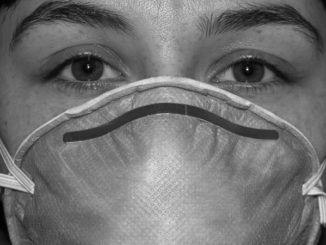How donating old cars can help more than just charities.

Henrike Wilhelm
Kicker
COVID-19 has hit everyone hard economically. Especially charities since less people have money to spare for a good cause in such hard and uncertain times.
A donation that benefits the donor just as much as the charity seems like the perfect solution.
Car donation programs pick up and recycle old, unused cars. The proceeds go towards a charity of the donor’s choice, while the donor receives a tax receipt.
The idea behind the program isn’t new.
One Canadian charity that has run a car donation program for over two decades is the Kidney Foundation. In April, the program began in Newfoundland and Labrador.
Ed Saunders is development manager of the foundation’s Atlantic branch. He emphasizes the benefits of the program for charities and donors, but also for the environment.
“It’s a win-win-win all the way around,” he said. “Financially, for the Kidney Foundation, we’re hoping that we can build this into a large portion of our patient support.”
“Without programs like the donate-a-car program, there’s lots of things that we would not be able to do.”
Generally, says Saunders, one in 10 Canadians has chronic kidney disease, which is “an expensive disease to have.” The foundation puts the raised money towards patient support, whether that’s paying for groceries, hospital parking permits or dental work.
Another charity that accepts car donations is the St. John’s SPCA.
Christa Skinner is manager of fund development for the animal shelter. She says the money from car donations is necessary, alongside other donations, to support charities.
“As a non-profit, we do not receive any government funding,” she said. “We operate because of these programs, because of our supporters. So, without programs like the donate-a-car program, there’s lots of things that we would not be able to do.”
Even though, says Skinner, car donations only make up a small percentage of all donations towards the St. John’s SPCA, they brought in just over $11,000 since the start of the program in 2013.
The money from the cars is used for the care of animals in the shelter, with veterinary bills ranging from flea treatments to neutering being the biggest expense.
Local recyclers and tow truck companies pick up the cars from donors.
Don Drew is operations manager at Newco Metal and Auto Recycling in St. John’s. He says the company has worked with many charities and their respective car donation programs over the years.
The company takes the cars apart before shredding them. They are then recycled and turned into useable metal again.
Drew explains the environmental impact of abandoned, rotting cars.
“Traditionally in Newfoundland, up until about 35, 40 years ago, those cars would go into a landfill,” said Drew. “Which means they would be just left there and buried and would gradually rust away.”
The rust, Drew says, goes into the groundwater, alongside fluids and oil, and the tires slowly rot away. Now, all the different parts, from copper in electric motors to aluminum, can be recycled.
Over the last few years, Drew says, the company has seen a considerable increase in people recycling items. He believes one of the reasons is more awareness.
“There’s more and more people who, especially the young ones, are getting more the mindset of recycling. The products only have a certain life and at the end of their life they want it recycled, they don’t want it going into a dump or into the woods,” he said.
Drew adds another factor is how long products last.
“Your grandmother’s washer, she probably had it for 30 years, now they have a lifespan of five to eight years. They don’t last as long. So they need to be recycled,” he said.
“It’s good for the environment, but it’s also good for jobs.”
Skinner has also noticed an increase in car donations and optimistically looks into the future.
“Last year, we had 11 separate donations and as of the end of September we have received 12, so we have already gone over last year despite everything that’s been going on in the world,” she said.
Saunders paints a positive picture as well. He says the Kidney Car program, as it is called, has been received well in the province.
“Across Atlantic Canada, we have Kidney Car locations in Halifax, St. John’s and also some places in New Brunswick,” he said. “In total so far this year, there have been over 200 vehicles donated, I think almost half of those in Newfoundland.”
The Atlantic branch of the Kidney Foundation hopes to raise between $30,000 to 35,000 with the Kidney Car program by the end of the year.
Drew stresses the environmental benefits of recycling cars and points to another positive factor.
“It’s good for the environment, but it’s also good for jobs. We employ about 170 people, at 10 locations, and they’re all local people. It helps cleaning up our communities and you don’t see as many old car wrecks around as you used to,” he said.




Be the first to comment